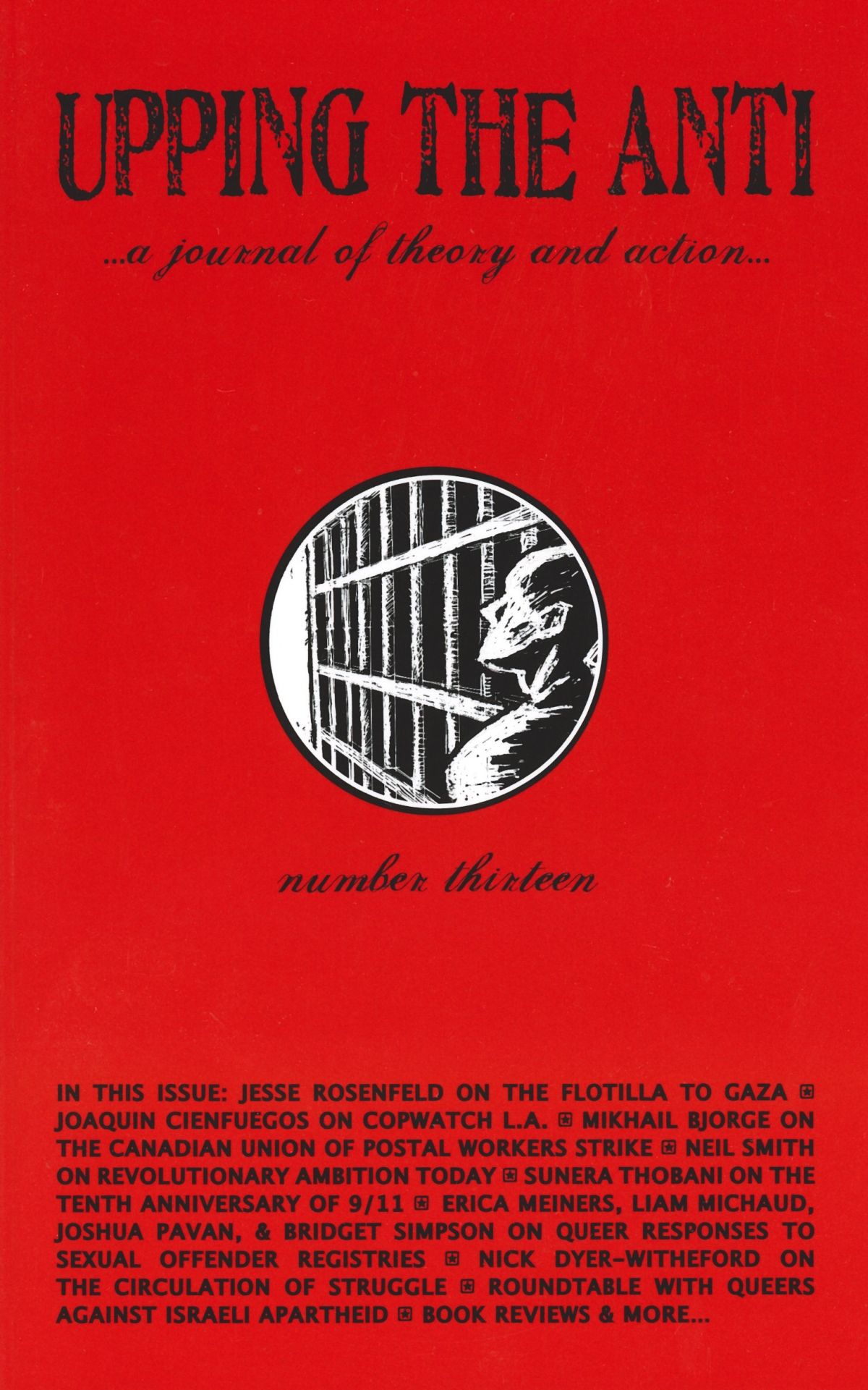The Way Out of the Desert
Dear UTA,
In “The Right Desires: Their Base and Ours,” you laid out with stark clarity the situation we face with Right-wing populist movements in Canada, the US, and Europe. Progressive forces must engage in counter-recruitment; we must recognize the real anger and fear that motivates Right-wing constituents – who are predominantly white and middle-class, and some working-class – and redirect it toward constructive social outcomes. This is not about attempting to recruit the active leaders of Right-wing populist movements, but about challenging them for the allegiance of millions of people who are legitimately angry at the status quo and justifiably fearful about their future. In the immediate term, we have to push back attempts by Right-wing populists to parasitize and recruit out of the Occupy movements.
I met some of the folks from Upping the Anti a few years ago at the Z Media Institute in Woods Hole, Massachusetts. In his main lecture there that year, Noam Chomsky described the right-wing populist revolt as being populated by the “precariat,” a term popular in Europe that denotes a precariously positioned middle-class. Although we didn’t use the term, the “precariat” concept was central to Right-Wing Populism in America, which I co-wrote with Matt Lyons. Trevor Harrison plowed similar ground in Of Passionate Intensity: Right-wing Populism and the Reform Party of Canada. Harrison’s title is taken from “The Second Coming” by William Butler Yeats, which includes the lines: “Things fall apart: the centre cannot hold,” and “The best lack all conviction, while the worst / Are full of passionate intensity.”
The theme of Left Forum in March 2010 was “The Center Cannot Hold: Rekindling the Radical Imagination.” At the closing plenary, Chomsky told the audience that the “center is clearly not holding, and those who are harmed are once again shooting themselves in the foot…that’s what can be expected in the absence of constructive alternatives.” For this reason, “rekindling the radical imagination” is an urgent necessity. In order to do this, Chomsky suggested that we need to “understand what lies behind [the] perceptions and actions” of the right-wing populists, and “to ask ourselves why the radical imagination is failing to offer them a constructive path, while the center is very visibly not holding.” Answering this question remains vitally important since, as he further noted, “those who have real grievances are indeed being mobilized, but mobilized in ways that pose no slight danger to themselves and to the rest of us and to the world.”
Some of the grievances highlighted by Right-wing populists are legitimate. Their passion, however, is aimed at scapegoats. When Chomsky says the current period in the US reminds him of the rhetoric he heard over the radio as a youth from the Weimar Republic, he is recalling government gridlock, politicians pandering to the powerful and wealthy, and Right-wing populists raising bitter voices in opposition to their declining socioeconomic status.
We are not yet living under fascism in Canada or the US. As in Weimar Germany, we are living at a time when the Left and Right are contending for the allegiance of a mass base. History will record which way our countries turn. Too many analysts still cling to the notion that fascism is unilaterally imposed from above; in reality, it bubbles up from below, allowing elites to harness popular anger and resentment to maintain their power and privilege.
In Rehearsals for Fascism: Populism and Political Mobilization in Weimar Germany, Peter Fritzsche chronicles the dynamic of Right-wing populism interacting with and facilitating fascism in interwar Germany. He describes distressed middle-class populists in Weimar launching bitter attacks on both the government and big business. The Nazis later exploited this populist surge through ideological appeals involving demagoguery, scapegoating, conspiracism, and countersubversion panic, and thereby moved these populist constituencies far to the Right.
While full-blown fascist movements are rare – and fascist states even rarer – Right-wing populism’s flirtation with fascism creates many harmful outcomes. Increased repression and oppression targeting the most marginalized can result in serious harm even if the fascist spark never ignites into a blaze. To “lead the way out of this desert,” advises Chomsky, we must “work to sweep away the mists of carefully contrived illusion, reveal the stark reality, and also to be directly engaged in popular struggles that they sometimes help galvanize.”
Right-Wing Populism in America concluded with a call to develop broad coalitions to defend the Left’s gains from further erosion.
It means defending social welfare programs against rightist attack while also pointing out the paternalistic, abusive, and inadequate nature of many such programs. It means combating the fake radicalism and scapegoating characteristic of conspiracy theories by articulating systemic analyses of elite power.
In solidarity,
Chip Berlet
Boston

